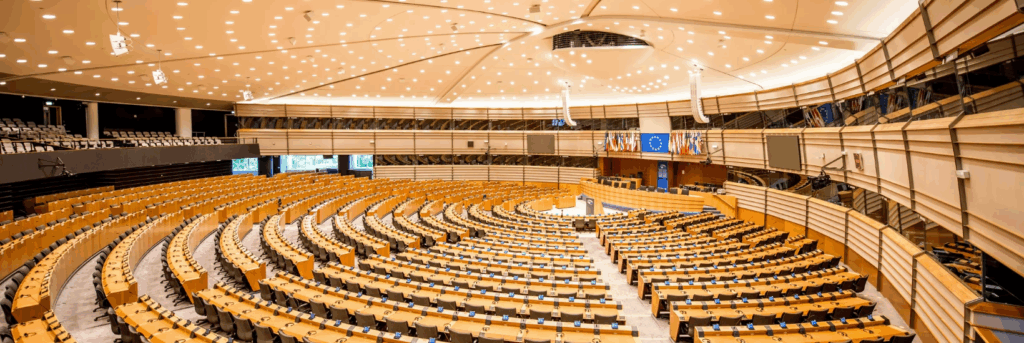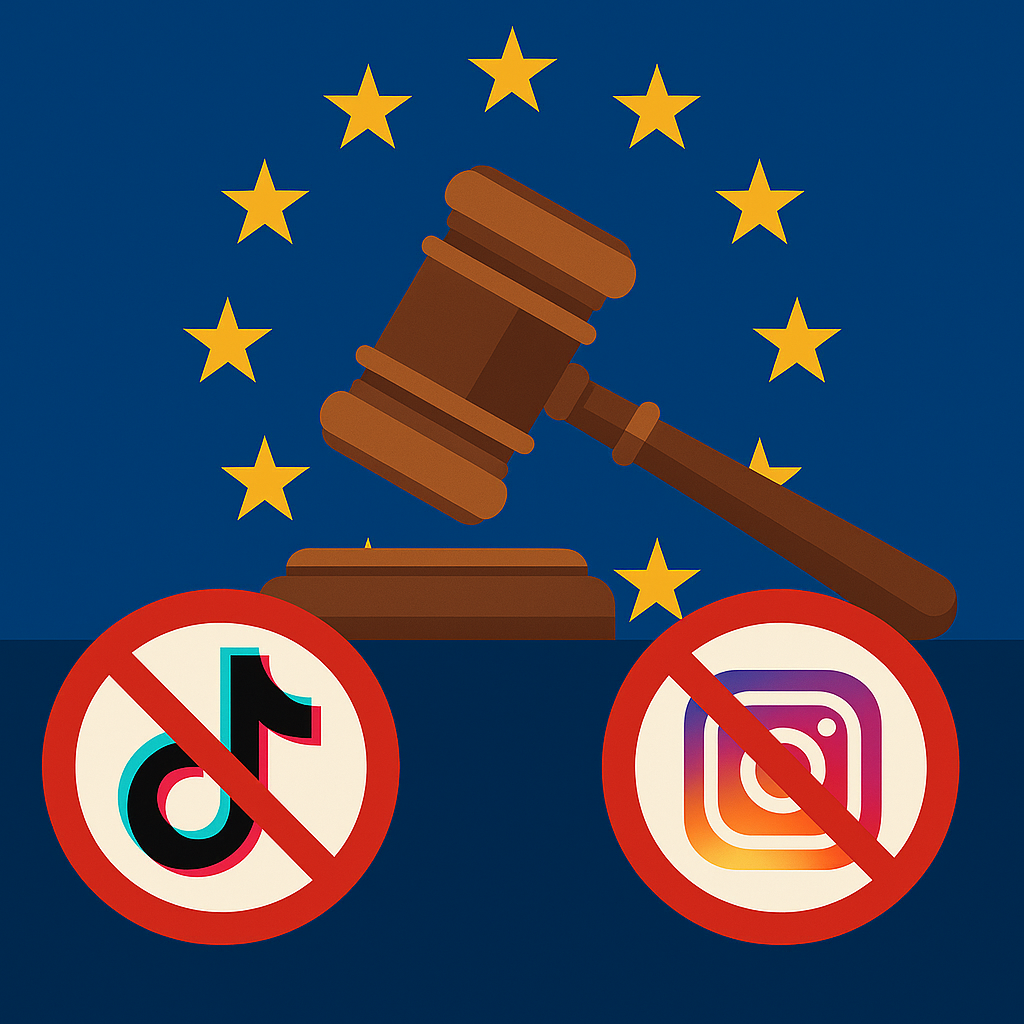Europe Bands Together to Protect Youth Mental Health
Europe is fully involved with one of its loudest global debates in technology. Lawmakers confront social media, teen mental health, and Big Tech pressure in a single vote. Members of the European Parliament adopt a sweeping position: children under 16 should stay off social platforms unless parents approve access. The resolution passes with force, though it remains nonbinding. It still rewrites the conversation across the bloc.
The measure follows a tense moment for digital policy. Ursula von der Leyen, President of the European Commission, is concerned about manipulative algorithms and addictive design. France wants tougher rules. The United States is also lobbying behind the scenes. Critics warn Brussels of possible regulatory overreach. Supporters say Europe protects kids, while others hesitate.
The vote is at the centre of that storm.
What’s Happening & Why This Matters
An EU-Wide Teen Social Media Age Floor

The European Parliament passes a resolution stating that minors under 16 should not access social media platforms without parental authorisation. The text stems from mounting evidence that constant engagement erodes sleep cycles, attention spans, and emotional stability. One study referenced in the report describes “problematic” smartphone behaviour in one of every four minors. That pattern suggests addictive behaviour.
Danish MEP Christel Schaldemose, who authors the resolution, speaks plainly: society cannot place the full burden on parents. She states that lawmakers need to protect younger users and reduce exposure to harmful engagement mechanics. Her report targets infinite scrolling, autoplay video systems, push-notification loops, and reward-driven engagement. She argues the design choices anchor the business model behind platforms that rely on attention extraction.
The resolution arrives as the European Commission evaluates Australia’s total ban on U16 social media access. Von der Leyen cites the model’s studies and launches an expert panel to produce recommendations for Europe. She calls addictive algorithms a danger. She further says parents feel overwhelmed by the constant digital platforms’ intrusions into family life. Both versions of the report mention the same point: Europe sees an urgent need to update protections for minors as recommender systems accelerate their influence.
Political Tension Across the Atlantic
The vote also enters the global conversation about sovereignty and digital rulemaking. During meetings in Brussels, U.S. officials call for EU moderation in exchange for progress on transatlantic tariffs. French MEP Stéphanie Yon-Courtin rejects that argument. She states that Europe does not take direction from foreign billionaires or foreign governments. She frames the decision as a matter of protecting children and maintaining regulatory independence.
The Digital Services Act already addresses harmful content and dark-pattern design. Still, MEPs argue the law misses specific protections for minors. The resolution encourages stricter enforcement. It also questions platform design obligations: safe-by-default, tailored for young users, stronger verification, and internal accountability for algorithmic design. The text cites manipulative patterns such as countdown timers, intrusive prompts, and push systems that keep users inside an attention loop.

A Divide Inside Parliament
Support for the measure reaches 483 votes. Ninety-two lawmakers push back. Another eighty-six abstain. Eurosceptic members warn the EU verves into territory belonging to member states and parents. They call the resolution interference. Supporters respond that the data is precise and the urgency outweighs jurisdictional disputes.
One week before the vote, the Commission announced delays to components of the AI Act. Officials defend the delay as an attempt to reduce administrative burden on companies. Still, lawmakers attach the social media vote to the comprehensive message: Europe prepares to tighten rules where children are at risk. It’s willing to step in when tech policy is slow, even if temporarily.
TF Summary: What’s Next
Lawmakers set the political stage for a new category of youth protections across Europe. Ministers, regulators, and the Commission face pressure to convert this resolution into enforceable law. Member states now confront their own internal debates over smartphones, platform design, parental authority, and child safety. Brussels views this vote as a mandate to act.
MY FORECAST: The next stage centres on verification technology and design rules. Expect fierce negotiation between EU regulators and global platforms. Europe treats teen safety as a sovereignty issue. That stance grows stronger during election cycles. A fundamental framework advances faster than Big Tech expects.
— Text-to-Speech (TTS) provided by gspeech


